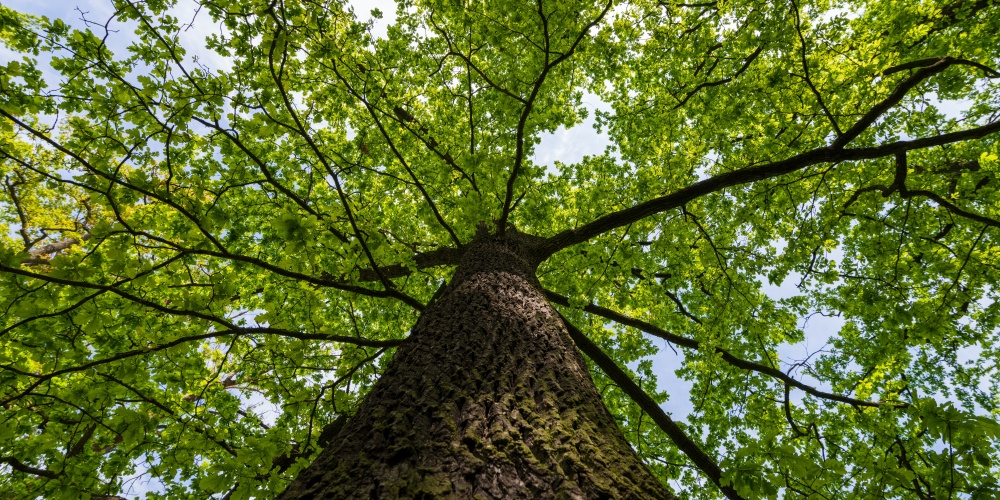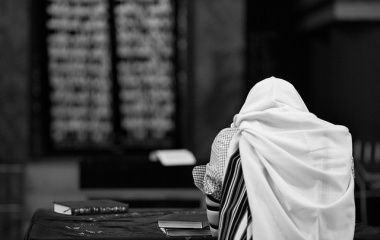
War brings out the worst in people. Rape, unjustified killings, pillage, random acts of destruction are sadly, tragically and inevitably the natural outcome of war – itself a great tragedy. That is true regardless of the morality or lack thereof of the war in the first place. The Torah tries its best to limit these “side effects” of war.
The Torah commands that “the [war] camp be holy” and many safeguards were put into place to try to limit the above. One of the Torah’s laws of war is the prohibition of ba’al tashchit[1] to destroy trees in battle. “When in your war against a city you have to besiege it a long time in order to capture it, you must not destroy its trees, wielding the axe against them” (Devarim 20:19). We are fighting people, not nature.
The Torah uncharacteristically gives a reason for this prohibition. “For the man is the tree of the field to come before you in siege”. Yet this reason adds little clarity to say the least. What does it mean a man is the tree of the field and what does that have to do with fighting a war? The commentaries struggle to understand this verse. Most follow Rashi and read it as a rhetorical question, “is man a tree of the field?" Since he is not, one has no right to destroy the tree. The tree is not at war with you so just leave it alone. While this idea makes perfect sense, it seems that had the Torah wanted this understood as a question it could have more readily done so by adding a vav so it would read v’ki which would turn the statement “man is” to “is man”?
Furthermore, if the Torah is prohibiting destroying trees it should have said “for is a tree a man that comes before you in siege.” Asking “is man a tree” implies that just as one may not destroy trees one may not kill humans, something that just is not true when it comes to war[2]. One would then have to understand the verse as saying that since man is not a tree, he can be killed unlike trees which must be preserved even in war. This is a reminder of the tragedy of all wars.
Understanding the verse as it appears to be, namely a statement that “a man is a tree of the field”, raises other issues. What does it mean that man is a tree? The context of war does not seem to be the place for the Torah to wax poetic, even as the Torah is a tree of life. And why does man being a tree prohibit us from destroying trees. Since man is a tree and men can be killed in war surely we can destroy trees?
The Torah does not say that adam, man, is the tree of the field, but rather ha’adam, the man is the tree of the field. Ha’adam, the man, refers not to humanity as a whole but to a particular, most special, person. “And God created ha’adam, the man, in His image”. Ha’adam is none other than Adam HaRishon, the first human created in the image of G-d[3]. If one takes a quick perusal of the first three chapters of Breisheet one will note that Adam (as in Eve’s husband) is (almost[4]) always - no less than 16 times - referred to not as adam but as ha’adam.
“And the Lord G-d commanded ha’adam, the man, saying, of every tree of the garden you are free to eat but as for the tree of knowledge of good and bad, you must not eat of it; for as soon as you eat of it, you shall die (Breisheet 2:16-17).
In the Garden of Eden man and nature co-existed in perfect harmony. Even death did not exist. When Adam and Eve ate from the tree they destroyed this paradise. No longer was the fruit of the garden edible. When man goes to war he determines, like G-d, who shall live and who shall die. It is an awesome, even inhumane (like war itself) responsibility. It is specifically at this time that man must remember Gan Eden; G-d’s beautiful creation and our obligation to “work and guard it”, the obligation to follow G-d’s command, the precious sanctity of life and the need to do our utmost to work towards a world where only the Divine Creator decides who shall live and who shall die.
[1] Our Sages expanded this prohibition to any unnecessary form of wastage – perhaps the first environmental law.
[2] Perhaps this is exactly what the Torah wants to emphasize. War is terrible and everything should be done to avoid it and the need to kill. And even in war one should do all one can to minimize casualties. I am reminded of Golda Meir’s famous line that she can forgive the Arabs for killing Jews but she can’t forgive them for making Jews kill Arabs.
[3] Fascinatingly, the previous verse informs us that G-d said, “Let us make adam, man, in our image, after our likeness”. Adam, mankind was created in G-d’s image. G-d then creates ha’adam, that first man, in His image. It is Adam HaRishon created in G-d’s who then partners with G-d in creating others in the image of G-d.
[4] The two beautifully expressed exceptions are where the Torah refers not to ha’adam but le'adam are in describing man’s inability to find an ezer k'negdo, a partner, from the animal kingdom. “And ha’adam, the man, gave names to all the cattle and to the birds of the sky and to all the wild beasts; but leadam, for Adam, no fitting helper was found: (Breisheet 2:20) and when G-d issues his punishment to Adam for eating the forbidden fruit. “To Adam He said, ‘Because you did as your wife said and ate of the tree about which I commanded you, ‘You shall not eat of it, Cursed be the ground because of you; By toil shall you eat of it All the days of your life”.
Whereas the opening of Breisheet is the story of Adam and Eve these particular verses are directed to mankind as a whole. This is a good example of what our Sages mean when they say that every letter of the Torah has great significance.



